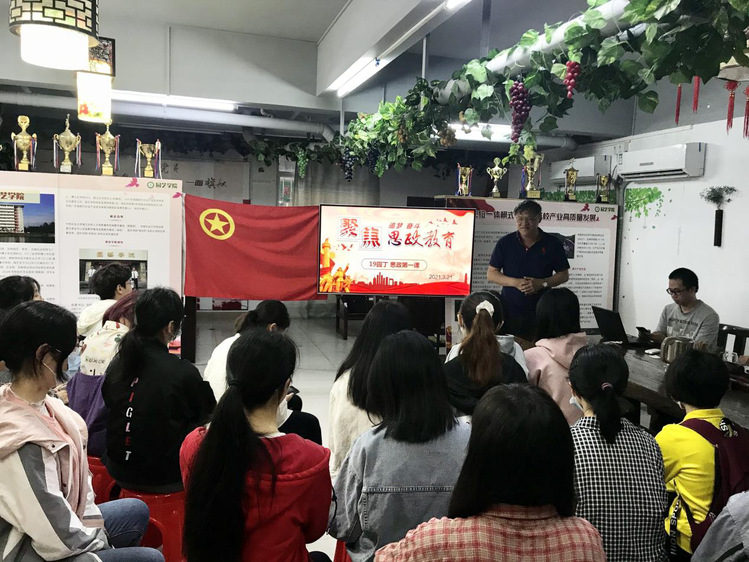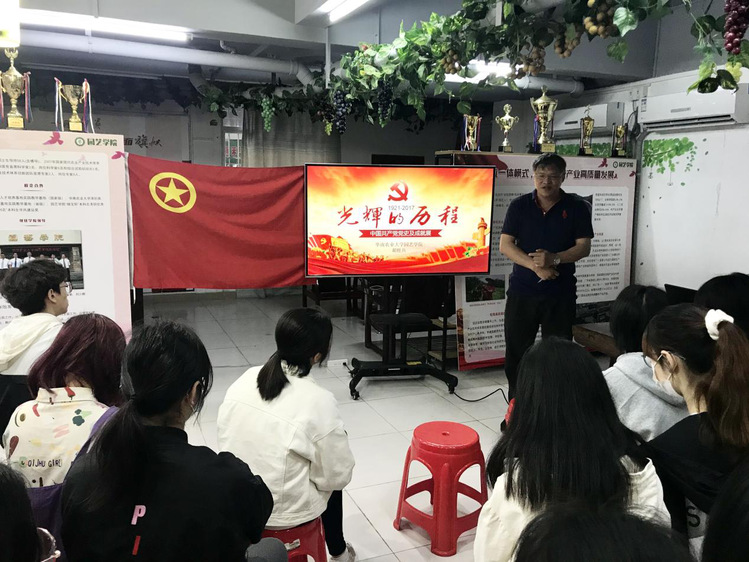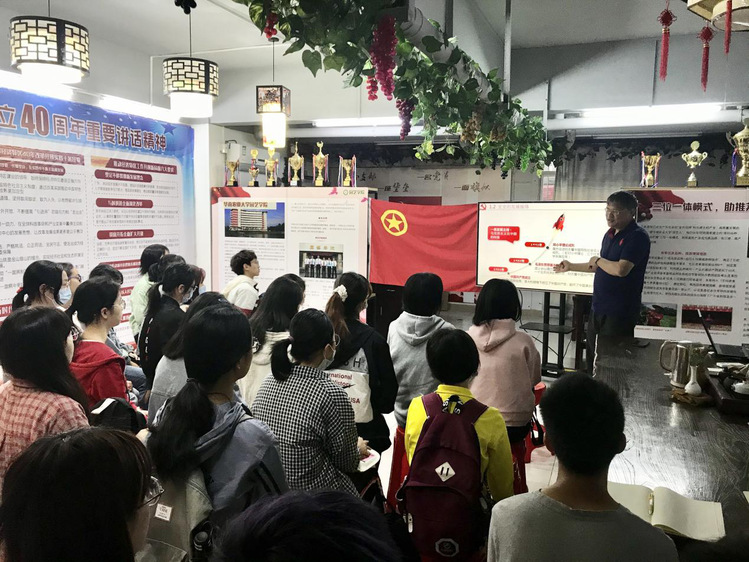
Learn the history of the party and assume the mission of the times-Dean Hu Guibing of the College of Horticulture teaches the first lesson of ideology and politics for the 2019 gardener class
On the morning of March 21st, Professor Hu Guibing, Dean of the College of Horticulture, gave the first lesson of ideological and political education for the 2019 Horticulture Ding Ying Class with the theme of Learning the Party's History and Taking on the Mission of the Times in the Qilinnan Community Creative Park.

Dean Hu first clarified the significance of studying party history for the students. 2021 is the 100th anniversary of the founding of the Communist Party of China. The achievements of this century are worthy of our pride and pride. We should earnestly study the history of the party’s creation, development, and growth. We must have a clear understanding of history, understand the laws of historical development, and learn from history so that we can be more confident and better apply past experience to future development.
Speaking from the development context of the party's history, President Hu pointed out: One of the main lines of the party's development is the spread of Marxism in China. After Marxism entered China, the establishment of the Communist Party of China in 1921 opened a new chapter in the Chinese revolution. The Mao Zedong Thought formed in the subsequent revolutionary struggle is a major achievement of the sinicization of Marxism; the reform and opening up in 1978 has developed to this day, and the theoretical system of socialism with Chinese characteristics has been formed.

Immediately afterwards, President Hu used the first to seventh party congresses as clues and focused on the party’s history during the period of the new democratic revolution. When talking about young people such as Mao Zedong, Zhou Enlai and others, Dean Hu specifically pointed out that these revolutionary ancestors began to emerge at a very young age, and the students should be ambitious, responsible, and daring to fight just like them. Speaking of the Third National Congress of the Party held in Guangzhou, Dean Hu told the students: Guangzhou is a heroic city, and Guangzhou’s city flower kapok is also called the hero flower. He suggested that the students should go to Guangzhou. Walk around the heroic places such as the Cemetery of the Martyrs of the Uprising and the Guangzhou Museum of Modern History, and receive red education and party history education more closely. Dean Hu's explanation is simple and profound. It not only teaches the magnificent party history, but also cuts into the students' study and life. Students must be educated to establish self-confidence and be down-to-earth; they must have an overall view and have the courage to take responsibility.

President Hu finally encouraged the students to firm up their beliefs and beliefs, learn their skills steadily, and become the backbone of the party and the country by the 100th anniversary of the founding of the People’s Republic of China! He also instructed his classmates: Party history is not something that you can study in one lesson, one day, or one year. It requires long-term and continuous study. Students should take the initiative to learn and get nourishment from history.
Through the study of the first lesson of ideological and political affairs, the students learned the important historical and practical significance of studying party history, understood the hard and glorious history of the Chinese revolution, and gained a clearer understanding and higher respect for the party. Feeling the influence of the red culture and absorbing the spiritual power of the revolutionary ancestors will greatly help enhance the combat effectiveness and cohesion of the class. The students also said that they have learned a lot in this ideological and political class, and will continue to study in depth and improve themselves in the future.


